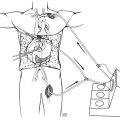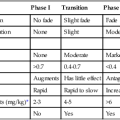In the U.S., about 121.5 million adults are affected by cardiovascular disease, which accounts for roughly 48% of the adult population. At the same time, nearly 16%—or about 1 in 6—have diabetes, which makes these two health issues the most widespread chronic conditions today. HealthDay News highlights these alarming statistics, prompting widespread concern and urgent calls for effective daily management strategies.
Time for Fitness
Finding time to work out can feel impossible when you’re juggling work, family, and a million other things. But adding some physical activity to your daily routine is important for keeping heart disease and diabetes in check. The good news is that you don’t need hours at the gym. Even squeezing in a quick 10-minute walk during your lunch break or doing a short home workout can make a big difference in keeping your heart healthy and your blood sugar steady. The trick is to make exercise a regular part of your day, just like brushing your teeth or grabbing a meal. And, you can sneak in more movement without carving out extra time by things like taking the stairs instead of the elevator or biking to run nearby errands. These little changes can help you stay active without feeling like you’re adding more to your already packed schedule.
Processed Foods
Processed foods, often convenient and delicious, pose significant risks for those managing cardiovascular disease and diabetes. These foods are typically high in unhealthy fats, sugars, and sodium, which can exacerbate heart conditions and spike blood sugar levels. Nutritionists emphasize the importance of reading labels and being mindful of ingredient lists to avoid hidden additives and preservatives that can negatively impact health. Another crucial aspect to consider is that processed foods possess an inherently addictive quality, primarily because the substances they contain activate the brain’s pleasure centers, which can lead to increased overeating. Over time, regularly consuming these types of foods can disrupt the body’s natural hunger signals and lead to persistent cravings, which makes it significantly more challenging to control and moderate intake. Recognizing the addictive nature of processed foods is vital as it equips individuals with the knowledge to make more informed dietary choices and understand the profound impact these foods have on both physical and mental health. This awareness is a powerful tool in breaking the cycle of dependence, and can enable people to take proactive steps towards healthier eating habits and better overall well-being.
The Vital Role of Medical Tags for Chronic Disease Management
Wearing medical tags isn’t just a simple precaution—it’s a must for anyone dealing with chronic diseases like heart issues or diabetes. These tags have all the important information that first responders and doctors might need in an emergency, which means you get the right help fast. This can literally save your life, especially if you have a sudden heart attack or a really bad drop in blood sugar. But it’s not just for emergencies. Having your medical details on a tag is a constant reminder of your condition, helping you stick to your treatment plans and stay on top of your health. Doctors and health experts say that having a visible medical ID helps prevent delays in getting treatment and generally leads to better health outcomes. Needless to say, it’s a key part of managing your chronic illness every day.
Chronic illnesses can certainly pose challenges, but the good news is that many of them are manageable with the right approach. When we take proactive steps and make consistent, healthy choices, we can effectively manage these conditions and improve our quality of life. While it does require effort and commitment, staying informed, following medical advice, and integrating healthy habits into our daily routines can go a long way in keeping these illnesses under control.




